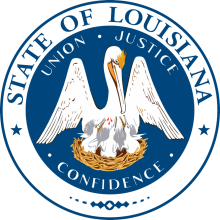
Louisiana’s broadband deployment grant program, GUMBO (Granting Unserved Municipalities Broadband Opportunities), was announced with great fanfare by Gov. John Bel Edwards and several state lawmakers when earlier this summer they visited Lake Providence in East Carroll Parish, the first community in the state to be the beneficiaries of the $130 million grant program.
Broadband-hungry residents and businesses were licking their chops at the prospect of finally getting access to reliable high-speed Internet service in an area that had long been underserved. But what’s leaving a bad taste in the mouths of East Carroll Parish residents is an eleventh-hour challenge to the grant award by the regional cable company.
Conexon was awarded a $4 million grant to bring fiber-to-the-home (FTTH) service to over 2,500 households in the rural northeast part of the state. But the monopoly cable provider who serves the area – Sparklight (formerly known as Cable One) – filed a challenge to the grant claiming the cable company already serves 2,856 homes there, even though, as noted by The Advocate, that is nearly 1,000 more homes than what U.S. Census data reports in the project area.
The challenge has brought the project to a grinding halt on the day network construction was slated to begin. The delay has community residents and some state lawmakers frustrated as the state’s Division of Administration tries to figure out if the challenge has any real merit.
Generally, GUMBO regulations allow a seven-day window to protest after an award is announced. Protestors have 10 days to provide data supporting their challenge. Bid winners then have 10 days to respond and the Division of Administration has 20 days to decide. Either side can appeal to Commissioner of Administration Jay Dardenne. Once his decision is made any appeals go to state district court.
‘Moving Papers Back and Forth’
While state lawmakers who sponsored the legislation that established the GUMBO program are voicing their displeasure with the challenge, Division of Administration and Office of Broadband Development & Connectivity officials are keeping a lid on commenting on the challenge for now.
Republican State Sen. Beth Mizell, a leading GUMBO advocate who lives in a rural part of the state in a home that does not have broadband access, told The Advocate, “I’m tired of hearing how much money is being put in broadband but I’m not seeing any work being done. None of that has become reality. We’re still moving papers back and forth.”
Another Republican State Senator, Daryl Deshotel, who sponsored the legislation that established the GUMBO program, also voiced his frustration with the roll-out.
“This is a once in a generation chance to fix the system. We expected some challenges. We didn’t expect as many as we got,” he said, referring to the 26 challenges that have been filed since the program awarded the first 67 grants.
Meanwhile, the Division of Administration has said it will not release the challenges until its lawyers determine whether the challenges contain any proprietary information. And Veneeth Iyengar, executive director of Office of Broadband Development & Connectivity, has said, “I can’t go into a protest process that’s still active.”
However, East Carroll Parish residents Laura Arvin and Nathanael Wills, joined our Connect This! program last week to discuss the challenge.
We were actually supposed to do a launch event tonight … and begin sign ups of what we were calling the largest rollout of broadband in a rural area in a year’s time to move the parish we live in from last place, in terms of connectivity in Louisiana, into the top ten. That has all been halted and delayed by Sparklight doing this eleventh hour Hail Mary to keep out competition.
They had several times to apply for the money themselves. They had a three-month protest period earlier on they could’ve protested. But (this is) their playbook … it affects real people.
To hear Arvin and Wills elaborate on the Sparklight challenge and its reputation for poor service you can watch the program here. Arvin and Willis join the show at the 33:30 minute mark.
A Challenge with Merit or Gaming the System?
While the federal government and states try to avoid awarding deployment grants to areas that are already being served by an existing provider, not wanting to use taxpayer dollars to fund “duplicative” networks, what often gets missed in the challenge process – beyond the overt attempts of incumbent providers to stave off competition – is that, in many instances, the existing network relies on older degraded infrastructure. That leads to unreliable connectivity and, because it’s the only game in town, subscribers are often left paying high prices for second-rate service.
But, as Wills noted, these kinds of challenges by monopoly Internet service providers gaming the system are nothing new, as we report here. In fact, some states have grown weary of challenges that turn out to have no merit, which is why in Minnesota, for example, if a broadband provider issues a challenge to a grant award but is found to have not fulfilled its obligation to serve the area it claims, it is denied any state funding for the next two funding cycles.
We will keep an eye on the GUMBO program and follow up to report on how this challenge is resolved. Follow our Twitter account here to stay up to date on the latest.







